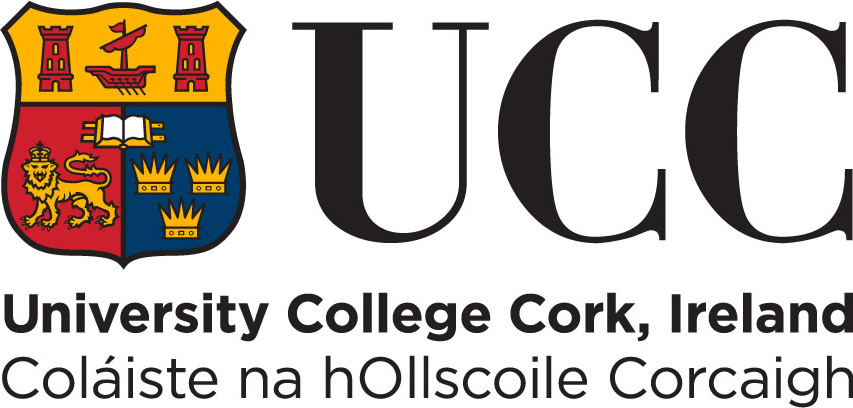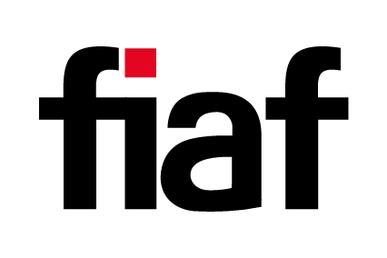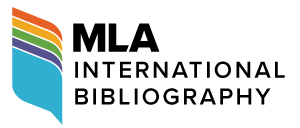Screening Rights Film Festival 2016
Birmingham, UK, 15–18 September 2016Will Amott and Pablo Alvarez
Nearly four hundred people attended the inaugural Screening Rights Film Festival in 2015. Their feedback was considered in the preparation of this year’s festival, which took place from 15–18 September 2016, and featured twelve social justice films in comparison to last year’s seven. These films from countries including Honduras, Palestine, China and the UK were discussed in more post-screening discussions, and were seen by more people, due to the festival’s growing viewership across an increased amount of venues in Birmingham. A central feature of the festival was its use of one of the intrinsic capacities of film: the power to effect personal, social and political change, either through documentary, fiction or a mixture of both. Each selection at this year’s Screening Rights Film Festival showcased this capacity differently: some offered direction for the audience to think critically about what they witnessed, while some connected the audience with unfamiliar communities or encouraged them to become more politically active.
Birmingham as a city, as a cultural and industrial hub in the middle of England, matters when one considers the potential impact of a festival of this kind. Sonia Tascón wrote in her review of the 2015 festival that, “the need to connect [Birmingham’s] increasingly diverse population is vitally important”, which still holds true. One complaint levelled at the festival was that it could feature more local films, in order to look at the disadvantaged close to home as well as overseas; stories like Giro: Is This the Modern World? (Jonnie Turpie, 1985), the only Midlands-set feature of the festival. If anything, with the UK’s recent vote to leave the EU, and growing unrest and miseducation around the issues of migration, refuge and nationhood, the importance of social education and cultural diversification is even more pressing today.
Hooligan Sparrow (Nanfu Wang, 2016) was shown in a lecture theatre in the original Margaret Street building of the Birmingham School of Art. The red-brick Victorian Gothic setting (and academic and aesthetic associations) offered an incongruous though stimulating context for the whistle-blowing documentary about child rape committed by a Chinese school principal. Also screened in a lecture theatre and followed by a live discussion between a historian, a musicologist and the audience, was The Battle of the Somme (Geoffrey H. Malins, 1916). This classic propaganda war documentary describes the British army’s participation in the battle that left 250,000 British soldiers dead (almost 20,000 during the first day of the campaign) in one of the bloodiest battles of the First World War. This re-release featured a new score by Laura Rossi, which gave vital, contemporary rhythm to the historical images, effectively supporting the emotional arc of the film.
Showing these two films in the centre of Birmingham—indeed, showing all these films in the centre that is Birmingham, sitting at the heart of England—affirmed the sense of the festival fashioning new spaces for previously unheard dialogues and discourses. Screening Rights is about raising awareness and understanding, promoting discussion of human rights and abuses, and inciting further action. Utilising spaces like the Margaret Street building and artistic hubs like the Midlands Arts Centre and the Electric Cinema, which come with both cultural currency and longstanding “Brummie” histories attached, help the festival to achieve this aim because they situate the unfamiliar within the recognisable.
Two of the films screened presented a first-hand personal experience of a humanitarian crisis: Ambulance (Mohamed Jalaby, 2016) and Hooligan Sparrow In both documentaries over the course of the shoot the documentary makers become totally invested in the stories that they are recording. Their increasing involvement means that they are soon facing the same physical dangers and/or political consequences as their subjects. They become interwoven in the narrative fabric. In Ambulance, Palestinian director Mohamed Jabaly risks his life joining a Gaza ambulance crew responsible for assisting the victims of the Israeli airstrikes during the 2014 war. In Hooligan Sparrow, the young director becomes an activist and, consequently, a potential target for the Chinese State by filming the life of women’s rights activist Ye Haiyan (the eponymous Hooligan Sparrow). Wang’s film demonstrates both the importance and the intrinsic danger of journalistic freedom, filming with her camera—and, at times, with covert video-recording “spy” glasses—the dramatic episodes suffered by the activist as a result of her relentless fight to raise awareness and provoke action over the case of six abused school girls and countless more unknown victims. Similarly, with the singular perspective of a hand-held camera, Jabaly allows the audience to observe the Israeli air attacks from within, that is, to contemplate the destruction of the public and private architecture of Gaza and the grief of desperate Palestinian neighbours unearthing young corpses from the rubble and dust. The extreme involvement of these two filmmakers and their aim to capture the violent and unforeseen reality are essential for a distant audience to experience the conflictfrom the point of view of the defenceless. Such involvement contrasts with the total absence of directorial intervention in the Nicaraguan-Honduran production Lubaraun (María José Alvarez and Martha Clarissa Hernández, 2013), a beautiful documentary that tells the story of the Garifuna people, descendants of West African and Central African free people who emigrated to Nicaragua, Honduras and Belize to escape from slavery.
A focus on survivors is also seen—albeit from a radically different perspective—in one of the festival’s highlights: After Spring (Steph Ching and Ellen Martinez, 2016). Boasting striking cinematography, this feature documentary tackles the crisis of Syrian refugees who have fled from the Syrian civil war that broke out after the uprisings of the 2011 Arab Spring. Produced by US TV personality and director Jon Stewart, After Spring follows the daily life of two Syrian families in the refugee camp of Zaatari (Jordan). While the directors of Ambulance and Hooligan Sparrow are wholly embedded within their respective humanitarian crises, After Spring relates its story to the viewer with more critical distance. The film chooses not to focus on any explicit violence, nor does it dwell on the chaotic condition of the refugee camp. Rather, by following and interviewing both victims and UNHRC (United Nations High Commissioner for Refugees) workers, and letting them speak in their own words, After Spring calls attention to the less dismal aspects of the crisis. The diligent humanitarian effort of aid workers and activists is encapsulated in the construction of the tae-kwon-do school, which appears to function as a symbol of hope for them and for the refugees. Choosing to film from a position of less overt involvement—maintaining a formal distance—means that After Spring avoids obscuring its central message with tangential material. Thematically it is cogent, thus translating its message more effectively to a wider range of viewers than some of the festival’s other productions.
Another festival highlight was Shadow World (Johan Grimonprez, 2016), inspired by the homonymous book by Andrew Feinstein, the South African author, ex-politician and Corruption Watch UK director. During a short pre-film introduction, Grimonprez used the well-known Hitchcock quote “the paperback is very interesting but I find it will never replace the hardcover book” to make clear that the film could not replace the original text. While this might be true, the impression that the documentary leaves on the viewer is one of a fully realised, successful capture of what the book text only pretends to unveil. Both film and book investigate the encrypted world of the global arms trade. However, where the book might risk alienating the reader with its excessive detail, the film sends a very straight, visual message to the audience. By combining interviews with scholars, politicians and arms dealers, alongside historical stock footage, this investigation untangles the net of arms trade and diplomatic relationships. The straightforward tone of this untangling caused unease and incredulity in the audience, as was made clear during the post-film discussion.
The festival opener, SEED: The Untold Story (Taggart Siegel and Jon Betz, 2016), provided more investigative, provocative documentary. Screened at MAC and followed by a transatlantic Skype Q&A session with its directors, this feature-length investigation—and, indeed, total immersion—into the lives of seed-keepers across the world highlighted their passion and, more importantly, the reasoning behind this passion. The film is an effort to denounce the damage caused by globalisation, and effectively communicates the worrying impact of agricultural industrialisation driven by agrichemical companies, including Monsanto, Syngenta and Bayer (Bayer has since acquired Monsanto). The overall tone of SEED: The Untold Story is light hearted, even playful. The film manages to avoid an alarmist tone, despite the political grievances on which it centres. This playfulness is most evident in the use of animated scenes. Their inclusion is strong evidence for the usefulness of mixing media as it bolstered the filmmakers’ educational argument with an entertaining flourish.
The embedding of fiction in reality-based documentaries was also present in the Canadian production Two Soft Things, Two Hard Things (Mark Kenneth Woods and Michael Yerxa, 2016) and the British Giro: Is This the Modern World?. While aesthetically and thematically dissimilar to each other and to SEED: The Untold Story, these two documentaries also employ fictive elements. Two Soft Things, Two Hard Things plays with animation to explore the impact of religion and colonialism on Arctic Inuit beliefs about sexuality and family structure. Giro: Is This the Modern World?, on the other hand,blends interviews with humorous sketches to narrate the problem of unemployment in a group of young people from the Midlands during Margaret Thatcher’s tenure as British Prime Minister in the 1980s.
Fiction in film can engage with and manipulate emotions in a different way to documentary. Personal, social and political change can be effected not just by screening the “reality” of an event, but also by performing it, and emphasising the interpretive property of the filmmaking process. This prompts the audience to consider the choices made, their intended effect, and whether they are successful. Two fiction films were included in the SRFF program, and both make a strong argument for fiction’s place alongside documentary in defending social justice: Zvizdan (The High Sun, Dalibor Matanic 2016) from Croatia and the British production Chicken (Joe Stephenson, 2016). The High Sun, which was awarded the 2015 Jury Prize in the Un Certain Regard section of the Cannes Film Festival, is divided into three different Shakespearean love stories that take place over three decades, the protagonists of which are condemned to disaster by the ethnic hatred of the Balkans wars. The same performers play different roles in each story. What initially might confuse the viewer turns out to be an effective filmmaking choice, outlining the universality of love even amid such difficulty. Chicken is the adaptation of the homonymous stage play from Freddie Machin that tells the story of Richard, a 15-year-old boy with severe learning difficulties living in a caravan with his beloved chicken and his unstable brother Polly. One night, the chicken appears to have been torn apart by foxes, and the crime comes to symbolise the protagonist’s continuous struggle between his inner naivety and the harsh external reality that he is forced to live.
The 2016 Screening Rights Film Festival was created with the express intent of not only engaging, but also moving, provoking, and connecting with its audience. This impetus was evident in its composition. Nearly every screening was followed by a discussion or Q&A session featuring the film directors, writers, or expert guests offering insight, contextual knowledge or the occasional amusing anecdote regarding the filmmaking process. After the screening of Generation Revolution (Cassie Quarless and Usayd Younis, 2016), a documentary about black and brown political activists based in London, the directors and some activists from different political groups provided the audience with further first-hand insight. Such interplay between filmmakers and audience members is important to consider when constructing events like the Screening Rights Film Festival, not only because it elaborates on what is being shown onscreen, but also because it crucially reminds the audience that film is not a pure reflection of life, but a constructed and edited interpretation instead. For some, it will confirm their responses, and potential actions after seeing the film, and for others it will encourage them to do further research and critically think about what they have seen. Festival organiser Michele Aaron is a longstanding Senior Lecturer in Film Studies at the University of Birmingham and a member of B-Film: the Birmingham Centre for Film Studies. This past summer, she ran a filmmaking project as part of a programme arranged by Sharek Youth Form, a youth empowerment organisation based in Ramallah in the West Bank. Four different university groups took part and during the festival a winning short film made by one group was screened. This work best exemplifies the potential of the festival: that it will not only share stories from across the globe but in turn might motivate further production, and establish Birmingham as a first port of call for their distribution.
References
1. After Spring. Directed by Steph Ching and Ellen Martinez, 2016.
2. Ambulance. Directed by Mohamed Jabaly, JABFilm Production, 2016.
3. Battle of the Somme. Directed by Geoffrey H. Malins, British Topical Committee for War Films, 1916.
4. Chicken. Directed by Joe Stephenson, B Good Picture Company, 2016.
5. Feinstein, Andrew. The Shadow World: Inside the Global Arms Trade. New York: Farrar, Straus and Giroux, 2011.
6. Generation Revolution. Directed by Cassie Quarless and Usayd Younis, 2016.
7. Giro: Is This the Modern World? Directed by Jonnie Turpe, Birmingham Film and Video Workshop, 1984.
8. Hooligan Sparrow. Directed by Nanfu Wang, The Film Collaborative, 2016.
9. Lubaraun. Directed by María José Alvarez and Martha Clarissa Hernández, Luna Films, 2013.
10. Machin, Freddie. Chicken. Directed by Melanie Spencer, Southwark Playhouse, London, 2011.
11. SEED: The Untold Story. Directed by Taggart Siegel and Jon Betz, Collective Eye, 2016.
12. Shadow World. Directed by Johan Grimonprez, Wide House, 2016.
13. Tascón, Sonia. “Human Rights, Film, and Social Change: Screening Rights Film Festival, Birmingham Centre for Film Studies.” Necsus,Spring 2016. www.necsus-ejms.org/human-rights-film-social-change-screening-rights-film-festival-birmingham-centre-film-studies/ Accessed 26 Sept. 2016.
14. Two Soft Things, Two Hard Things. Directed by Mark Kenneth Woods and Michael Yerxa, MKW Productions, 2016.
15. Zvizdan [The High Sun].Directed by Dalibor Matanic, Bac Films, 2016.
Suggested Citation
Amott, W. and Alvarez P. (2016) Screening Rights Film Festival 2016. Alphaville: Journal of Film and Screen Media, 12, pp. 128-132. https://doi.org/10.33178/alpha.12.11.
Will Amott is a Midlands3Cities AHRC-funded PhD candidate studying Film at the University of Birmingham. His research focuses on representations of HIV and AIDS.
Pablo Alvarez is a PhD candidate of the Department of Film at the University of Birmingham. His thesis concentrates on spectatorial distance in media representations of war.









